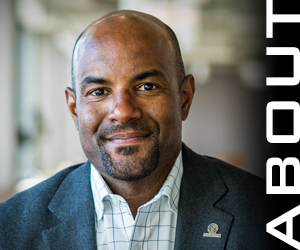CEO Outlook | Summer 2025
A Pathway for All
As our legislation to create new pathways to becoming a licensed CPA in Illinois makes its way to being signed into law, embracing adaptability must become the focus.

Geoffrey Brown, CAE
President and CEO, Illinois CPA Society
Insights From Your President and CEO
When people think of the traits of certified public accountants (CPAs), they likely think of the tenets of trust, integrity, and technical expertise. But there’s another foundational attribute of CPAs and the CPA profession—adaptability.
As the world around us rapidly evolves, so too must the requirements for becoming a licensed CPA. Discussions across the country in recent years about just this—modernizing CPA licensure—have sparked successful legislative efforts in dozens of states, including here in Illinois.
We’re still celebrating the May 2025 passage of House Bill (HB) 2459, which amends the Illinois Public Accounting Act to create two additional pathways to CPA licensure in our state and enhance CPA practice mobility. These new pathways include:
- Obtaining a bachelor’s degree with the required concentration in accounting, completing at least two years of relevant work experience, and passing the Uniform CPA Exam.
- Obtaining a master’s degree with the required concentration in accounting, completing at least one year of relevant work experience, and passing the Uniform CPA Exam.
While we strove for modernization with this bill, adaptability was also a key component of our efforts. This is why we also wanted to preserve the state’s legacy licensure pathway, which requires aspiring CPAs to complete 150 credit hours of qualifying education, complete one year of relevant work experience, and pass the Uniform CPA Exam. In all, future aspiring CPAs considering licensure in Illinois will have three distinct pathways to consider, which should allow for ample adaptability for their unique situations.
Collectively, these amendments represent a significant step forward in modernizing CPA licensure requirements while maintaining rigorous standards, ensuring that we attract top talent to the accounting profession while honoring the tenets the profession is entrusted with.
Of note, our legislation is slated to become effective in 2027. This offers ample time to pause, reflect, and ponder how we’re going to leverage the new licensure pathways for maximum benefit. There’s been an arguably pressing need to eliminate unnecessary barriers to entry into the CPA profession for several years, most notably, the time and costs required to become a CPA. Further, addressing Illinois’ ongoing accounting talent shortage and growing need for CPAs to serve the business community and protect public interests is critical. So, as drafters of this legislation, we’re committed to supporting candidates, educators, and employers through this transition. We encourage open dialogue and welcome questions about what these changes mean for all stakeholders.
We also acknowledge change can be challenging, but it’s necessary to help overcome the obstacles on the horizon—think talent pipeline issues, shifting demographics, and changing regulatory standards, just to name a few. Although not always credited with being adaptable, CPAs and the CPA profession have always evolved to successfully meet the needs of the world we live in. By creating these new CPA licensure pathways, we’re once again showing our adaptability, and I’m hopeful the next generation of professionals will now be positioned for success.
I’d like to recognize the efforts of HB 2459’s sponsors, Reps. Natalie Manley, CPA (D-Joliet), and Amy Elik, CPA (R-Edwardsville), Sen. Suzy Glowiak Hilton (D-Oakbrook Terrace), and co-sponsor Sen. Chris Balkema (R-Pontiac). Their support in the Illinois General Assembly was instrumental in advancing this important initiative for the accounting profession in our state and ensuring its readiness for the future.
Related Content: